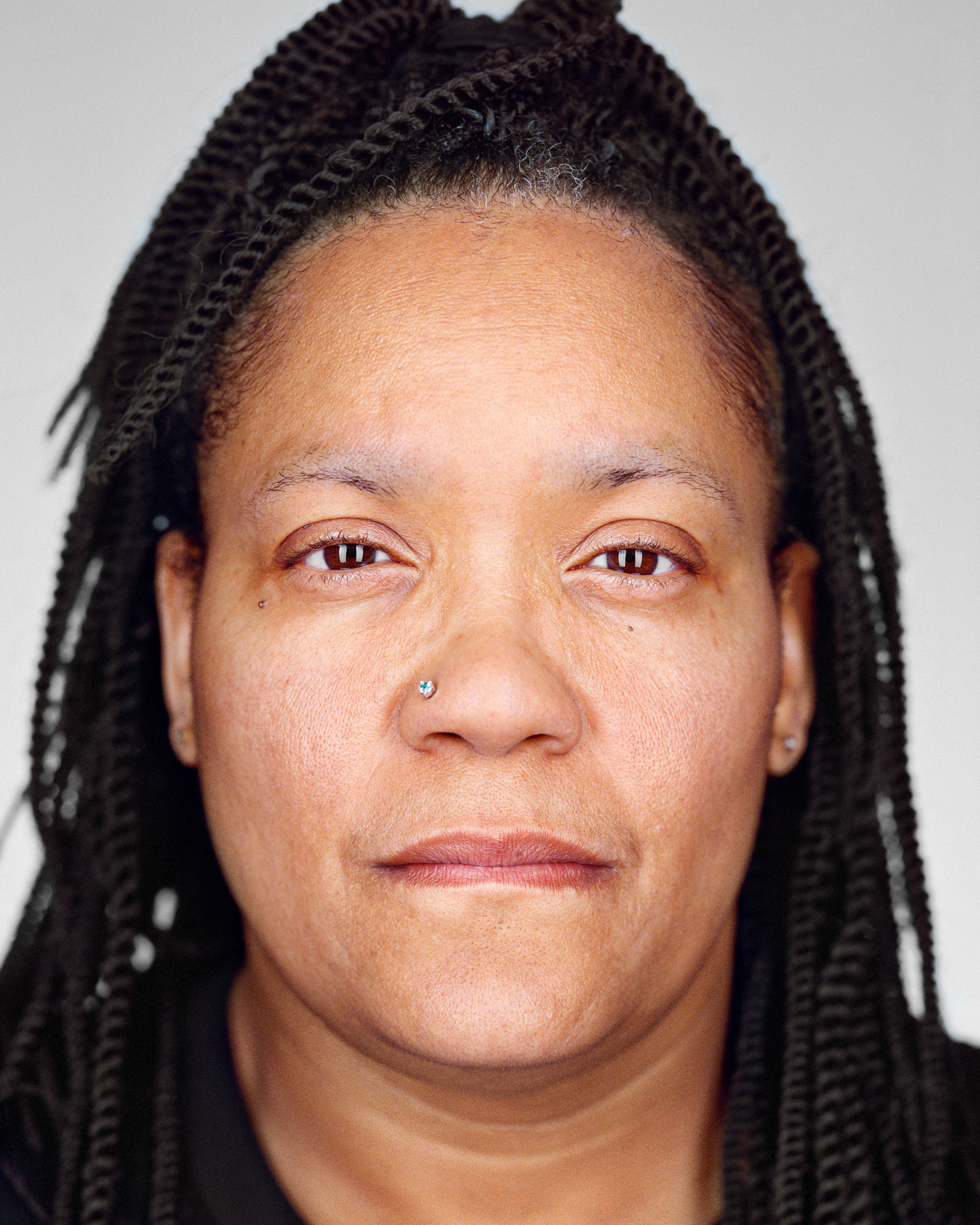
Sabrina Butler-Smith
Sabrina Bulter-Smith spent five years in prison, three years on death row, for a crime she did not commit.
“I was 19 years old when I made it to death row. I had never been incarcerated before so I didn’t know what to expect. When they take you in, they strip you of everything that you thought was yours; it’s not yours anymore. They put bug spray in my hair. They put you in these tanks like you’re animals. They gave me a number, took pictures. On my name tag it had ‘Capital Murder.’ That was humiliating. But the walk to max security was hard for me, because the officer that walked beside me told me, ‘You see those inmates out there in the field? We tell them when to go to sleep, when to get up, what to eat. You will die here.’ And when he said that to me, I didn’t know what to do. All I could do was cry, cause here is somebody telling you you that you gonna die. What would you do if someone said that to you? You know, your life is not your own anymore. You’re a ward of the state and whatever they say, that’s what goes.”
Sabrina Butler-Smith was a loving teenage mother when she was wrongfully convicted in the death of her nine-month-old son, Walter, in Mississippi. She was later exonerated of all wrongdoing, after spending six and a half years incarcerated, two of those years on death row. She was the first woman exonerated from death row in the US.
On April 12, 1989, Sabrina rushed Walter to the hospital after he suddenly stopped breathing. Sadly, attempts to resuscitate her baby failed and he died the next day. Still in shock, Sabrina was questioned without an attorney or her parents present, and Walter’s hereditary medical conditions were ignored. She endured her loss and grief alone in prison until her second trial proved her innocence.
Sabrina now lives in Memphis, blessed with three thriving children. She speaks as often as she can to the public and media about her tragic story and works to change legislation regarding the death penalty and criminal justice, determined to make the system better so others, especially youth, do not have to experience what she did.
”I'm a soldier and I'm going to do exactly what it takes. …because if it happened to me, it could happen to you, it could happen to anyone. But kids are more vulnerable… a lot of children get mixed up…they really don't understand that whatever you say can be used against you. I want to change the law because, you know, I was a child when this happened to me.”
“I was 19 years old when I made it to death row. I had never been incarcerated before so I didn’t know what to expect. When they take you in, they strip you of everything that you thought was yours; it’s not yours anymore. They put bug spray in my hair. They put you in these tanks like you’re animals. They gave me a number, took pictures. On my name tag it had ‘Capital Murder.’ That was humiliating. But the walk to max security was hard for me, because the officer that walked beside me told me, ‘You see those inmates out there in the field? We tell them when to go to sleep, when to get up, what to eat. You will die here.’ And when he said that to me, I didn’t know what to do. All I could do was cry, cause here is somebody telling you you that you gonna die. What would you do if someone said that to you? You know, your life is not your own anymore. You’re a ward of the state and whatever they say, that’s what goes.”
Sabrina Butler-Smith was a loving teenage mother when she was wrongfully convicted in the death of her nine-month-old son, Walter, in Mississippi. She was later exonerated of all wrongdoing, after spending six and a half years incarcerated, two of those years on death row. She was the first woman exonerated from death row in the US.
On April 12, 1989, Sabrina rushed Walter to the hospital after he suddenly stopped breathing. Sadly, attempts to resuscitate her baby failed and he died the next day. Still in shock, Sabrina was questioned without an attorney or her parents present, and Walter’s hereditary medical conditions were ignored. She endured her loss and grief alone in prison until her second trial proved her innocence.
Sabrina now lives in Memphis, blessed with three thriving children. She speaks as often as she can to the public and media about her tragic story and works to change legislation regarding the death penalty and criminal justice, determined to make the system better so others, especially youth, do not have to experience what she did.
”I'm a soldier and I'm going to do exactly what it takes. …because if it happened to me, it could happen to you, it could happen to anyone. But kids are more vulnerable… a lot of children get mixed up…they really don't understand that whatever you say can be used against you. I want to change the law because, you know, I was a child when this happened to me.”
